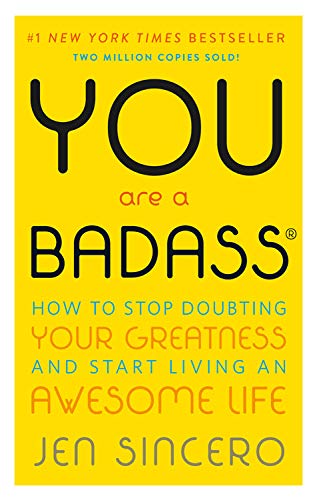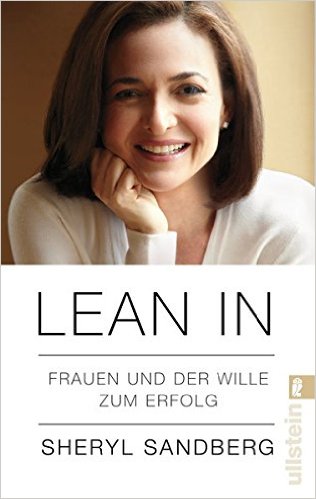Here’s an interesting fact: By the year 2028, 75% of the world’s discretionary spendings will be controlled by women, and 1/3 of all businesses globally will be owned and run by women. The world is full of brilliant working women who exude power and grace in ways that have transformed the world. With this positive realization in mind, now is the time for working women to plan for their future (and that includes planning for their retirement and investing their money).
If there’s one thing you’ve heard from us on repeat for you, it’s that the best time to invest is yesterday. That’s because the longer you wait to get started, the more opportunity for future returns you could be giving up.
It’s true. Historically speaking, a dollar invested today is worth more than a dollar invested later.
But it’s not the right advice for you if you don’t know where to start setting good financial habits. Okay, but… you have to start somewhere. That’s according to Sallie Krawcheck, the co-founder, and CEO of Ellevest, an innovative digital investment platform for women. The seasoned Wall Street veteran asserts that there are key financial habits every woman should establish. “If you haven’t paid down your credit card, you want to get that credit card debt down because that stuff is expensive. If you don’t have an emergency fund, that three months or so of take-home pay that’s in the bank, safe, waiting there for when emergencies can happen, you want to do that. If you’re not investing in a 401(k) at work, if it’s available, you want to do that. And, if you can, you want to also invest.”
The idea is to establish good financial habits now. Here’s where we recommend starting, more or less in this order, to build up a financial foundation (and get ready to start investing down the line).
1. ESTABLISH A BUDGET
A budget is an itemized summary of likely income and expenses for a given period. Through the formulation of a budget, you will be able to keep track of how much money you allocate to certain components of your life, thereby having an element of control over your financial fate. By utilizing a budget regularly, you will grow accustomed to a particular routine in regards to your spending habits and will lessen your chances of overspending.
Budgeting, however, does not mean you can’t enjoy your money. You can absolutely still enjoy your life. You did the math. You know that the shoes you bought last week and going out to eat tonight isn’t going to stop you from paying off debt by next year or buying a house someday or saving enough for retirement. So why on Earth feel guilty about it.
Budgets aren’t restrictive — they’re freeing. They are, in themselves, self-care.
You work hard really for your money, and if it fits into your budget, you absolutely deserve to treat yourself.
Want to conquer your future?
You’ll need a financial plan for that. Here’s a free one.
2. HAVE A RAINY DAY FUND
As much as we wish we could control every outcome of our lives, the human experience is rife with mystery and unpredictability. Nobody is immune to life’s surprises. That is why it is key that we set aside a percentage or set amount of our income to cover abrupt concerns that surface. According to Sallie Krawcheck, who is the Chair of a global professional women’s network known as Ellevate Network,
“Your first savings milestone is to build an emergency fund, that three months or so of take-home pay that’s in the bank, safe, in case you get fired, or in case you have to take time away from work for, you know, an emergency.
3. SAVE FOR RETIREMENT
According to a recent report by Bankrate.com, the number one financial regret of Americans is not saving for retirement sooner. Whether you can enroll in a 401(k) through your employer or choose an individual retirement account where money can be withdrawn penalty-free, getting a head start on saving for retirement is a worthwhile decision. Carrie Schwab-Pomerantz, the senior vice-president at Charles Schwab, tells Ellevate Network that “Women often put the needs of others ahead of their own, but when it comes to retirement savings, you have to be a bit more selfish.
4. BUILD YOUR CREDIT HISTORY
In short, your credit history is a record of your responsible repayment of debts. In order to become an established borrower with banks and credit card companies, you need to get credit cards and loans and thereby build a solid credit history. Be sure to become an account owner rather than an additional cardholder, as credit history is recorded for each individual debt holder. As dynamic, savvy working women with plans of purchasing real estate or making large purchases, we need to have proof that we are responsible borrowers.
Want to conquer your future?
You’ll need a financial plan for that. Here’s a free one.
5. PAY OFF DEBT
New data released from the Federal Reserve indicates that Americans’ cumulative debt credit card debt has surpassed $1 trillion (yes, really!). If you plan to escape debt, most financial advisers will tell you to pay off high-interest debt first and foremost, but new research from the Harvard Business Review has something else to share with us. According to their research conclusions, “consumers who focused on repaying one of the several accounts, as opposed to chipping away at multiple accounts at once, paid off more of their debt over 36 months than their counterparts who took the opposite route.” In other words, as Business Insider summarizes, “the researchers concluded that the factor that made the biggest impact on how hard participants worked wasn’t the amount they were paying back or how much was left in the account afterward, it was the percentage of the balance they ended up getting rid of.”
Paying off your debt doesn’t have to follow a rigid formula. Simply focus on what method of repayment motivates you to get the job done in a reasonable time frame. Debt isn’t chic, ladies.
6. GET INSURANCE
Purchasing insurance is a key financial commandment for working women because it protects us from a lot of unintentional circumstances that are out of our control. From health insurance to car insurance to life insurance, there are many different forms to take into account if we plan to be prepared for anything that hits us. Although it isn’t a tangible, definitive product per say, insurance is a safe, responsible investment to make. Through becoming insured, we are transferring financial risks from ourselves to the insurance companies. Unless you can afford the worst case scenario in particular categories of your life without a sweat, insurance is the way to go.
7. CREATE A FINANCIAL PLAN
What are your financial goals for both the present and the future? Building a sound financial plan will help you to review your income, expenses, investments, insurance coverage, retirement planning, income tax liability, and more. Then, with that information, it will provide you with a course of action. Although financial planning is not as fun as planning for our next vacation, it will give us the opportunity to gauge our financial health and act accordingly. Our life’s trajectory may not be in our full control, but it is very empowering to be an active participant in the path of our hard-earned income. The default may be to hand over the responsibilities to our male counterparts, but as forward-thinking working women, this isn’t likely. To put this intention into action, it may be a good idea to consult with a Certified Financial Planner.
8. PREVENT IDENTITY THEFT
If your identity is stolen, there is a chance that your personal information will be utilized in order to obtain credit, acquire debt, and use services. As a result, your financial health may be negatively impacted. Protecting your solid credit scores is interconnected with your financial well being and without a good credit score, you risk adverse consequences. There are identity protection services that we can look into to save ourselves from a headache associated with identity theft.
Want to conquer your future?
You’ll need a financial plan for that. Here’s a free one.
9. INVEST IN YOUR FUTURE
Are you ready to see your money grow? If so, consider investing. There are many investment vehicles out there, including stocks, mutual funds, bonds, real estate, ETFs, and other alternatives. But, we get it–investing can be an intimidating, overwhelming, and just scary. The good news is earlier this month, Ellevest, an online investing platform for women, launched “The Go-Getter’s Guide To Investing,” a guide that breaks down investing for a female audience. The free guide aims breaks investing down into five basic rules, from how to budget your income to how to choose a financial advisor. So, what are you waiting for? Get started!
10. BE WISE, BUT LET GO
Establishing good financial habits is self-care.
You work hard for your money, and if it fits into your budget, you absolutely deserve that dinner, or that latte, or that random thing at TJ Maxx, or that trip with your friends. So treat yo self.
Related Stories
Trending Stories
Thanks
for joining!
Thanks
for joining!
We send good emails.
Subscribe Now.















